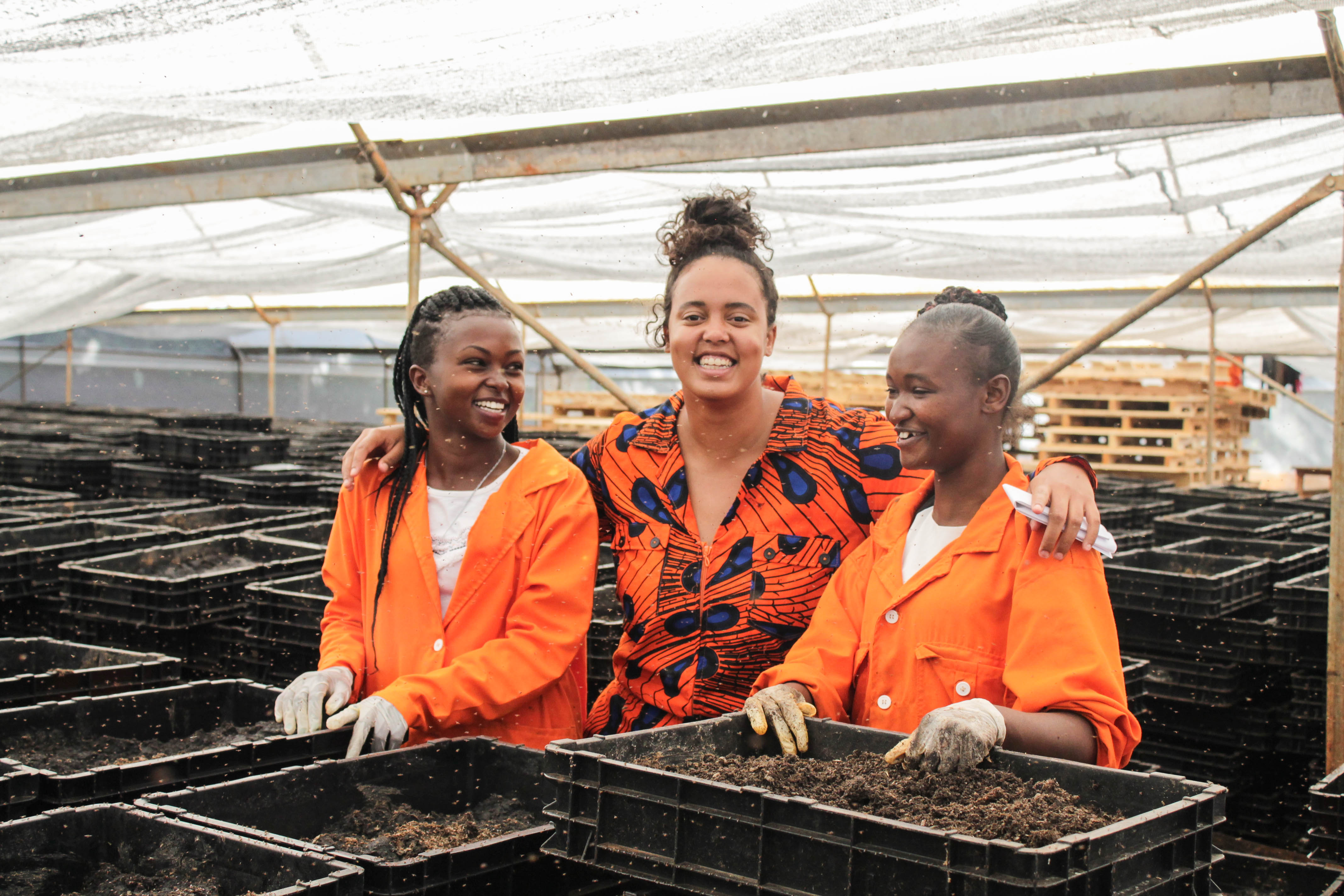
By George. P. Munene
Headed by the International Center of Insect Physiology and Ecology (ICIPE), headquartered in Nairobi, and aided by Kenya’s ideal climate, many insect farming startups are finding the country fertile ground in this new farming frontier.
According to Dr. Tanga Chrysantus, Head of ICIPE’s Insects for Food, Feed, and Other Uses (INSEFF) programme; “ Over 1000 farmers in East Africa are engaged in insect rearing. 75% of the region’s millers are willing to fortify their feed with insects to reduce their costs while up to 95% of fish and pig farmers are actively looking to bring down their production costs by incorporating insects into animal diets. In laying chicken, insect supplemented diets have shown to increase laying life by up to 62%.”
The "Insect Feed Market - Growth, Trends, and Forecasts (2020 - 2025)" report showed that the global insect feed market was valued at $687.8 million in 2018 and is projected to grow by 11.7% between 2022-2027. In 2019, the market for edible insects exceeded $112 million globally and is estimated to grow at over 47% CAGR between 2019 and 2026. Increasing demand for high protein, low fat & economical food source along with shifting trends in dietary needs is likely to stimulate market outlook.
Rearing insects provides farmers with an opportunity to meet a twin demand for both a public good and a money-making one.
Some of the Kenyan companies doing just that include:
Sanergy Limited
The company collects waste from Nairobi's informal settlements which are converted to organic fertilisers and insect-based animal feed that has been found to increase crop yield and animal weight by 30%.
Through its franchisee model, Sanergy serves over 126,690 urban slum dwellers processing 43,473 tons of waste.
Related News: Kwale farm using spirulina supercrop to combat endemic malnutrition
Related News: Eating crickets can end malnutrition in children
The organic waste is consumed by a colony of Black Soldier Flies (BSF) larvae which churn the waste into a nutrient-rich protein input for animal feed.
For fertilizer, frass residue from Black Soldier Fly production processes is mixed with carbon sources from plant waste to produce high-quality compost.
“We are intentional about using residual organic matter that isn't already finding its way into feed spaces, therefore not competing with traditional feed makers,” explained Ani Vallabhaneni, the company’s co-founder and CEO.
The company provides non-sewered sanitation solutions that are five times cheaper than traditional waste disposal methods.
Insecti Pro
Founded by Talash Huijbers, Insecti Pro is a Limuru based company that farms half a billion crickets and BSF for human and animal consumption respectively.
Despite generating up to three tons of feed daily the company can't satisfy growing consumer demand.
A rich source of protein, zinc, and iron, the company is working with over 100 restaurants in the country to have crickets featured in their menus.
Additionally, Insecti Pro is working to combat malnutrition using crickets to feed over 500 children in HomaBay County.
Black soldier flies are used to produce animal feed especially targeted to commercial fish growers. Black soldier flies contain over 50% protein making them a better option than soy. They are also far cheaper and purer than fishmeal.
The company is focused on meeting four of the UN’s SDGs: (2) Zero hunger and malnutrition by creating alternative food sources that are higher quality and more affordable; (9) Industry & Innovation; (12) Responsible production and consumption by using a zero-waste model focused on circular closed systems; and (17) Partnerships.
Organic waste, the company’s main raw material is bulky to transport which has meant a need to develop workarounds to improve their logistics.
“We have set up four different hubs across the rural countryside that are close to our end consumers who’s often the farmer,” explained Talash
At just 26, she provides employment to 80 full-time workers.
Related News: Kenya waste-to-value company enlisting farmers to earn from black soldier flies
“Insects have proven to produce healthier foods at maximum efficiency and with little environmental impact. For farmers and entrepreneurs, this is a clear high potential growth industry they need to be getting on board at the ground floor,” said Michael Beer, GM Business Development at AgriFutures Australia.
















Comments powered by CComment